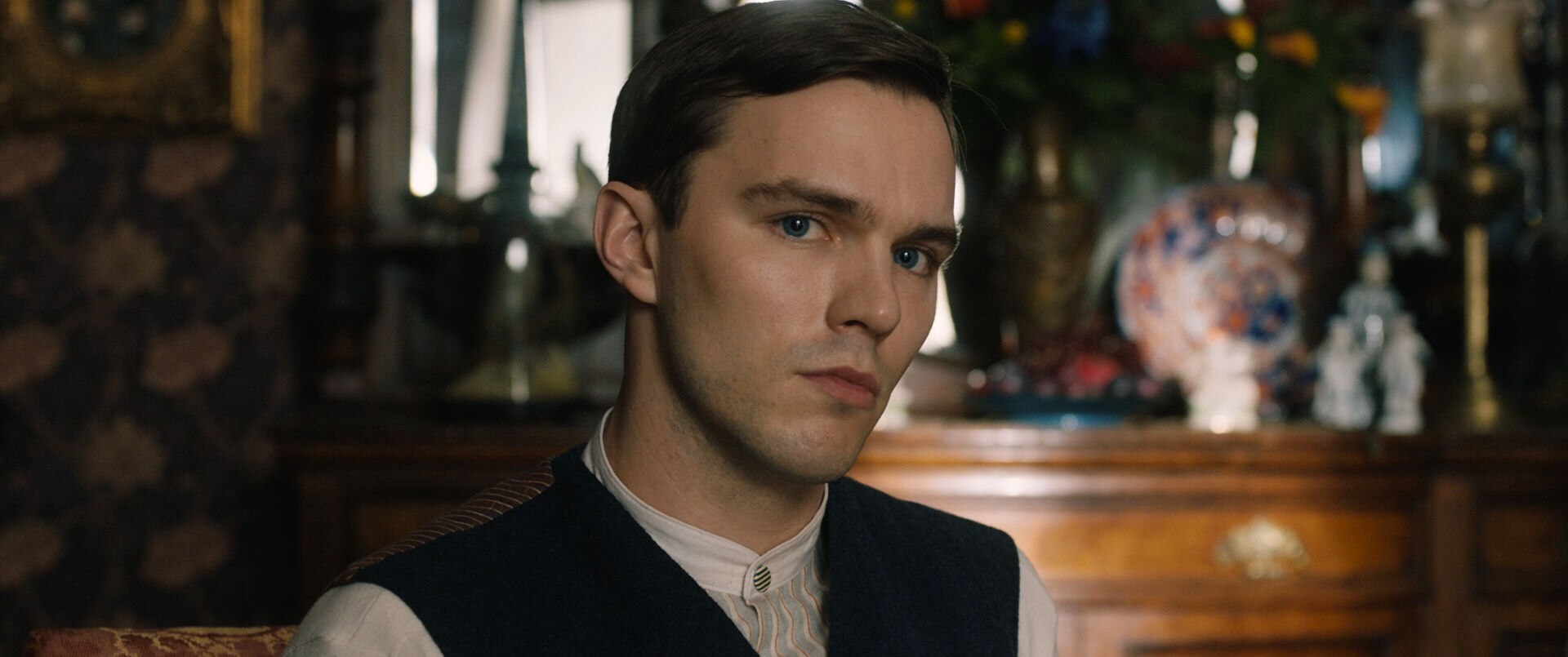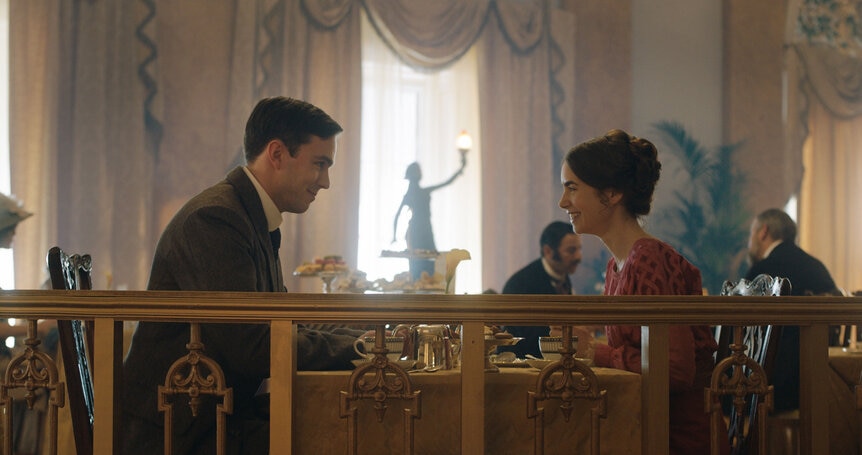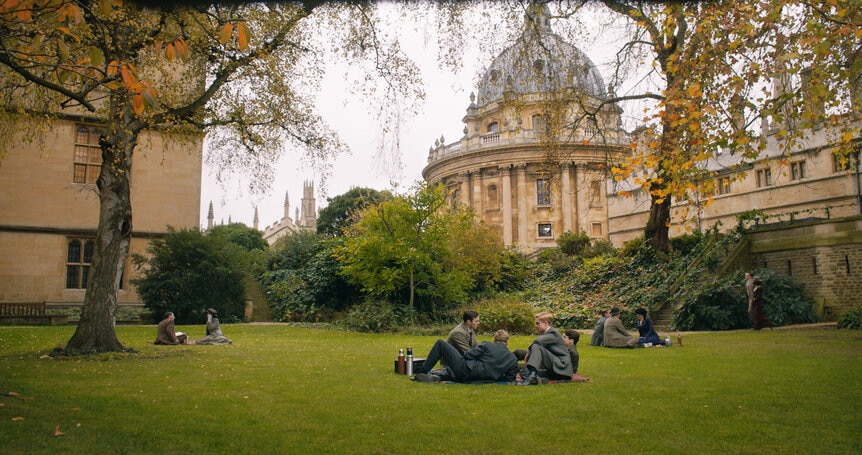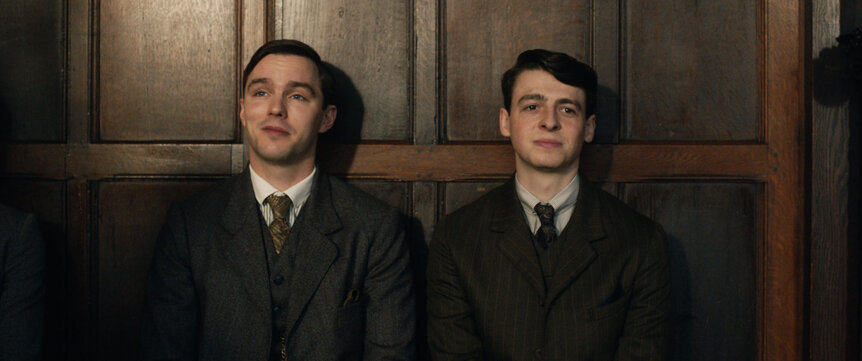Create a free profile to get unlimited access to exclusive videos, sweepstakes, and more!
Tolkien director details the poverty that shaped J.R.R. Tolkien's life and LOTR

Author J.R.R. Tolkien's life would have been a historic triumph even without the complications and tragedies he survived, but as a new biopic explores, the father of modern fantasy fiction struggled to create art in a socioeconomic system that was stacked against him.
Tolkien does take a few artistic liberties, but the scaffolding of Tolkien's story depicted in the film is all true, according to journals, several biographies, and documents from the time period. Tolkien's father died in 1896, when he was a boy, and he and his younger brother were raised for a few years by their mother before she died as well, leaving them in the care of the Catholic church.
Provided for by the church, the Tolkien boys ended up in a group home, and the soon-to-be author was told that a full scholarship would be his only access to education. Once he began attending private school, he was bullied by the wealthy boys before he finally found solace in three fellow nerds. The foursome, forming a club they called the Tea Club, Barrovian Society (T.C.B.S.), went off to Oxford together.
When they got into trouble, only Tolkien stood to lose his scholarship and face dropping out. Coming from money, his friends were ultimately going to be fine. Of course, they were all drafted into World War I shortly afterward, a series of horrific battles that took the lives of two of Tolkien's friends and shattered the psyche of the third, Christopher Wiseman. As Tolkien later wrote, his friend was never the same.
Dome Karukoski, director of 2019's Tolkien, tells SYFY WIRE that he chose to tell the author's story because parts of it felt oddly familiar.
"Like Tolkien, I grew up without my father. I was bullied, and I was an outsider like him," he says. "I didn't really feel myself open up until I started reading Lord of the Rings and playing Dungeons & Dragons." Based on his research into Tolkien's life, Karukoski believes the young artist sometimes used his fantasy world to escape. On other occasions, Tolkien absorbed difficult information — including the horrors of war, or the oppressive class system in Britain at the time — by disappearing into the fantasy stories he loved.
Nicholas Hoult, who plays Tolkien from his Oxford undergraduate years into middle age, says he was astonished to discover how much was asked of young men in the early 1900s. Raised in a strict class society, they were turned into soldiers as teenagers and then ejected (if they survived) into a modern economic system irreparably changed by war.
"They had to grow up so quickly," Hoult says. "They were all forced into war at a very young age." His co-stars, Patrick Gibson and Anthony Boyle, agree, though they add that Tolkien's life was especially difficult in comparison to his friends'.
"I don't think they fully understood the position he was in," Boyle says. In the film, Tolkien has to explain at length that he can't continue school if he loses his scholarship, and the fact seems to absolutely shock his pals.
Access to opportunity is, unfortunately, as modern a concept as it was 100 years ago. When Tolkien was a young man, 80 percent of the British population were employed as servants; we see this play out in the film when Tolkien's girlfriend Edith (Lily Collins) says she'll be trapped waiting on a wealthy woman for the rest of her life. That's something Karukoski had in mind as he made the film, fretting about societal changes he's noticed across Europe and the United States.
"Even in Finland," he says, describing the country he grew up in, "we're slowly changing from more of a 'we' society to an 'I' society. In Tolkien's time, England was a class society above all else. It still partly is, but not quite at the same level. Unfortunately, we're moving into a time similar to the one he experienced, when jumping from class C to class B is becoming extremely difficult."
Edith, a brilliant musician in her own right, wasn't offered an Oxford education purely because she was a woman. "She was such an inspiring woman," Collins told SYFY WIRE, "but without having Tolkien to give her an artistic escape, she may never have been able to have an outlet at all."
The film makes clear that a shared sense of humor and earnest adoration of fantasy stories brought the couple together — they play around in costume like children while backstage at a classical music performance neither of them could afford to see. "That's why it's so beautiful that they found each other," Collins says, describing their marriage, like Tolkien's literary work, as somewhat of a miracle.
Of course, the Catholic Church officials who paid for Tolkien's private schooling found both his fantasy writing and his interest in Edith frivolous. Karukoski says he chose not to dive deeply into Tolkien's complex relationship with religion, but the film does include a scene in which Father Francis (Colm Meaney) forbids Tolkien from pursuing a relationship. Focusing on classical studies was, the film implies, the "service" the church was paying him for, and because of that uneven power dynamic, Karukoski likes to think Tolkien was driven in adulthood to answer to no one.
"If you look at his stories carefully, you get a feeling that watching his mother die, not being able to help her ... it stayed with him," Karukoski says. "She was in a diabetic coma for six days before she passed. Imagine watching your mother fading, dying, and you can’t do anything about it because you don't have the money."
Karukoski sees a thematic link between this scenario and Tolkien always being the odd one out in private school, and that's where he chose to focus his story. "The political theme of poverty came from there," he says. "He thinks, 'If only I had money, I could have saved her,'" referencing a line from the film. "I believe poverty was a constant in Tolkien’s life. He never wanted to be poor again."

















